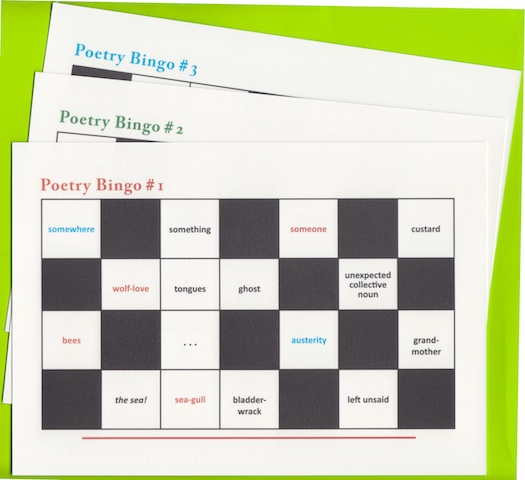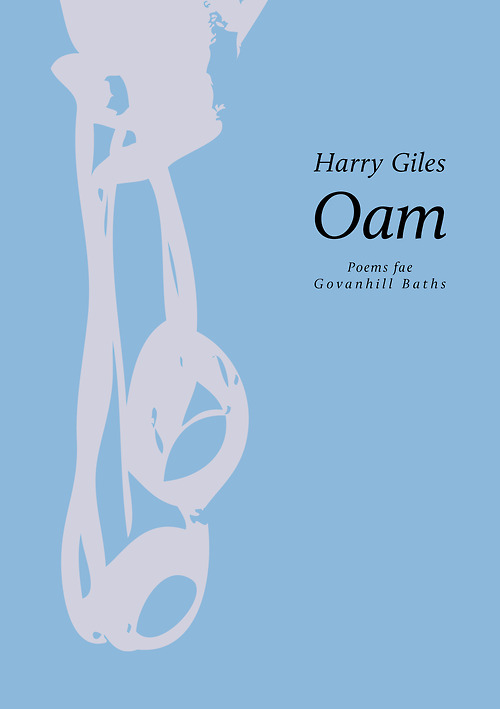‘Fleck and the Bank’ by Rob A. Mackenzie
-Reviewed by Harry Giles–
Rob A. Mackenzie’s wee book, from the Salt Modern Voices series, is a tight, clear, wry piece of wonder, and a great use of the pamphlet form. Its small and simple purpose to “make partial sense” of the author’s absent friend, Fleck is made loud and deep by being set in a credit crunching world of financial illusion where “the flies have started dining out on other flies”.
Fleck works for a bank in Customer Service, and so we get a clear line into the financial crisis and its culture. Predatory bankers appear, even while “Banks everywhere assert their neutrality” repeatedly. This is not political poetry, though, at least not in any direct way everything about the book is indirect, a talking around, which makes the poetry more metaphysical than anything else.
Like the fairground rides “whose humped rails / end at the entrance”, or the internet where “Fleck lunges / from site to site”, the book is characterised by its lack of a centre, by the irreducible absence of its subject. The poems are a series of signs pointing not to Fleck but to other signs, because Fleck himself is not there, is someone of whom even an imagined newscaster’s imagined dress is “more solid than himself”. The author writes of Fleck’s face:
“Smile and it will smile. If you desire conviction, it will lean forward. It responds sympathetically to self-pity.”
Fleck’s world is alienated in the usual post-modern way: “he has exchanged meals / for shelves of celebrity cookbooks”, his theological interest is in “the Spirit, absent at the crucial moment”. What makes this exciting is not just the language’s loopy precision, but also again the ironic relationship to high finance, where history is:
“supplanted by short-term hysteria
with illiquid complex ghost-assets
in security for other ghost-assets
in security for other ghost-assets
in security for other ghost-assets […]”
That language is a joy. Mackenzie has a distinctly sad and gentle tone, spiked with occasional wicked puns (“the twin securities / of life assurance and certain death”) and sharp absurdities (“skies of scrambled egg, chicken despair”; the politicians who exchange Y-fronts for animal role-play). This is not all Derridan différance: it is poetry, words taken for a walk, a mellow, mourning dance of language.
If there are any poetic sins here, they are not mortal. There is very occasional overstatement, maybe: the Balmoral sign which is “deflected by a blinding curve […] into holy darkness”, for example, which seems an awful lot to happen to a set of oversized letters. The theology (in which the author trained) seems to me less clear, less carefully laid out and gestured to, than the post-structuralism. But these are only rare bum notes, and maybe only in my ear, which nevertheless spent most of the time listening to the extraordinary music.
Special too are the centos and cento-likes, of which there are three: poems built by a collage of lines from other authors’ works. Of course the form matches the themes, at least in the ways I’m reading the book, but apart from that they’re stimulating nuggets in themselves. The two pure centos both respond delicately to recent collections by other contemporary Scottish poets: it is exciting to me that the author can find unforced reflections of the book’s own themes in the work of his peers. And the cento is such an unusual form that to see it done so well is a pleasure in itself, quite apart from the thematic coherence.
It is rare to find a collection put together so consistently, and perhaps being a pamphlet helps here, the themes do not get tired. But, on the other hand, the themes themselves are unusual, or at least have unusual clarity: to write more about a specific absence than any real moment or presence seems new to me, especially when achieved with such grace. And there will, as I’ve suggested, be many more ways to read this book than mine, it is far bigger than its size suggests. Fleck couldn’t hope for a better offering, wherever he is.





Pingback: Rob A Mackenzie’s “Fleck and the Bank” « Harry Giles : Home
Pingback: Published Poetry 2012: a Top 10 « Sabotage